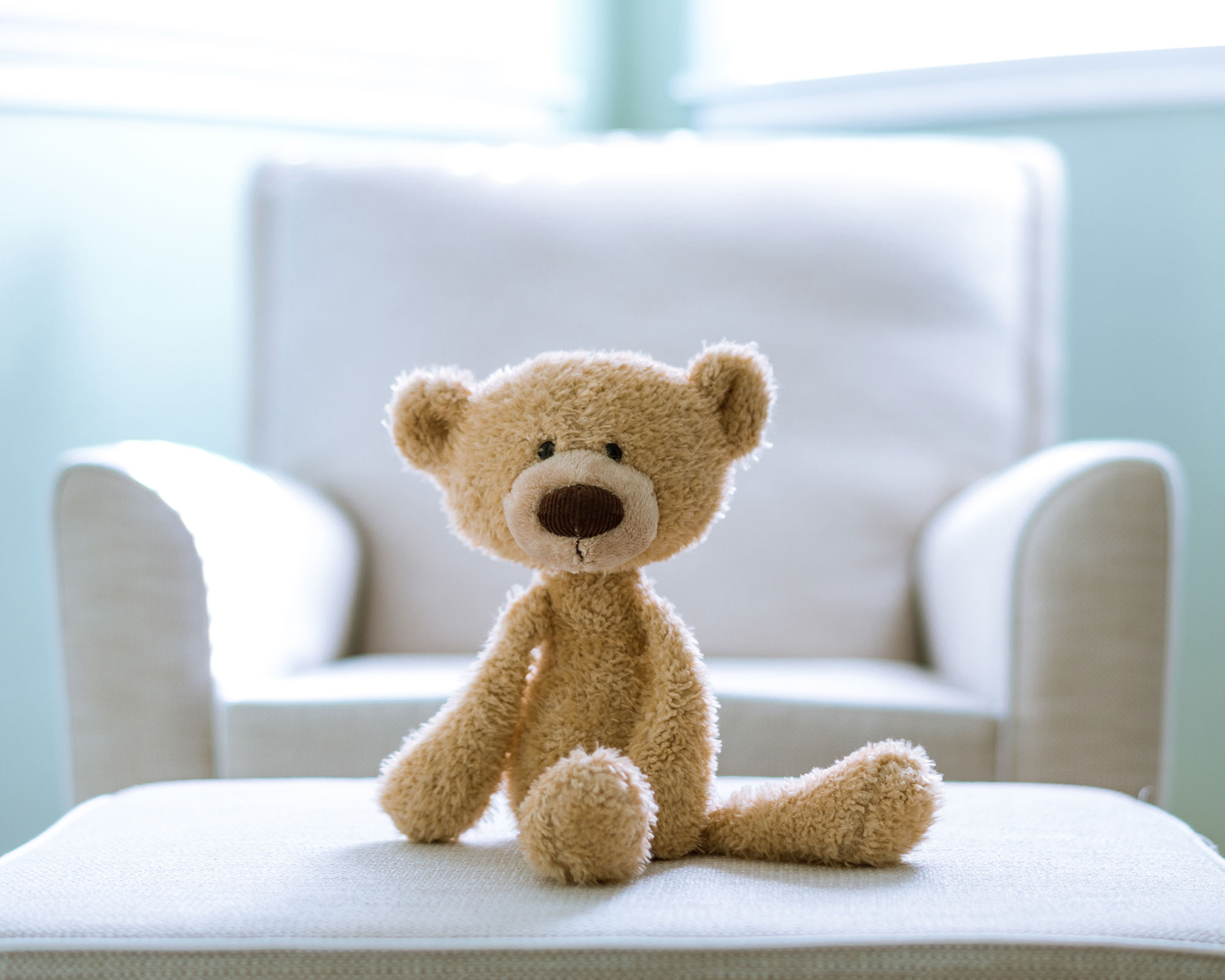
Design expertise in your inbox – from inspiring decorating ideas and beautiful celebrity homes to practical gardening advice and shopping round-ups.
You are now subscribed
Your newsletter sign-up was successful
Want to add more newsletters?

Twice a week
Homes&Gardens
The ultimate interior design resource from the world's leading experts - discover inspiring decorating ideas, color scheming know-how, garden inspiration and shopping expertise.

Once a week
In The Loop from Next In Design
Members of the Next in Design Circle will receive In the Loop, our weekly email filled with trade news, names to know and spotlight moments. Together we’re building a brighter design future.

Twice a week
Cucina
Whether you’re passionate about hosting exquisite dinners, experimenting with culinary trends, or perfecting your kitchen's design with timeless elegance and innovative functionality, this newsletter is here to inspire
Knowing how to wash stuffed animals is essential. For hygiene reasons, yes, but also a stuffed animal that’s well-cared for is likely to last longer, and we all know how important that is – they’re members of the family after all.
When you’re thinking laundry room ideas it’s definitely worth allowing space for washing and drying these treasured companions as well as everyone’s clothes and linens to keep them hygienic and fresh-smelling.
And washing stuffed animals is easy when you know how. With expert help, we’ve put together a complete guide to how to clean plush toys.
How to wash stuffed animals
Before we start, you might be wondering: can you wash stuffed animals? And the answer is that most stuffed animals can, and indeed should, be washed. ‘There’s no need for a beloved toy to get binned just because it’s as dirty as in The Velveteen Rabbit; kids can enjoy giving their favorite toys a bath,’ says Nick Vassilev, founder of Anyclean.
The key is deciding on a cleaning method that suits. Just like their owners, every stuffed toy is a little different, so there’s no one rule that suits all.
While most stuffed animals cope fine in the washing machine, some are older, more fragile, extremely precious, perhaps, while others have electrical parts, plush fur or embellishments that simply don’t do well in water. For these, handwashing or a simple surface clean are better routes to go down.
In terms of how often, it’s a good idea to wash them after your child has been poorly, or weekly if they sleep with them. Otherwise, you can usually tell when they start to look – or smell – like they’re in need of a bath.
Design expertise in your inbox – from inspiring decorating ideas and beautiful celebrity homes to practical gardening advice and shopping round-ups.
1. Check the care label
Before you start the process of washing stuffed animals, it’s always a good idea to check whether a particular toy has laundry symbols on the tag – the last thing you want to do is ruin it. This will help you to decide whether to use the washing machine, handwash or simply spot treat stains.
2. Spot test the fabric
If there aren’t any care instructions, or you want to double check how well the stuffed animal will stand up to cleaning products (sometimes the fur can shrink or change color), rub a small amount of diluted detergent on to a less visible part of the fabric. If any color comes away, stick to a gentle handwash in water only.
3. How to machine wash stuffed animals
Check the care label for washing instructions first; if there aren’t any listed, look at what the stuffed animal is made from. If the filling contains polystyrene foam, foam beads or excelsior they’re not suitable for a machine wash. For plush toys, check for leather, natural fur, mohair or wool; the same applies.
Assuming your stuffed animal is safe to go in the washing machine (double check it’s not damaged and has no electrical components or parts attached with glue), Nick Vassilev recommends using the gentle, delicate or hand wash cycle and cold water, along with a mild detergent for a routine clean. Pop the toy into a mesh bag and throw a few towels into the same wash for extra protection.
4. How to handwash stuffed animals
If you don’t have a washing machine, or you can’t/prefer not to wash a stuffed animal in one, you can still give them a thorough clean by handwashing. It’s a straightforward process: all you need is a sink, a mild detergent and a clean, dry towel.
‘Start by getting the toy’s fur damp, then apply a mild liquid detergent, shampoo or bar soap,’ says Nick Vassilev. ‘Work up a good lather by hand, then rinse until the water goes clear. Gently squeeze out excess water or wrap in a dry towel, then set the toy to dry in a warm, well-ventilated place.’
More delicate toys should be in the water for as little time as possible and try not to scrub too vigorously to avoid damaging them. If you’re handwashing a large stuffed animal that won’t fit into the washing machine, Nick advises against using too much water. ‘It’ll take forever to dry, which can cause bad odors,’ he says.
5. Surface clean stuffed animals with electrical parts
A stuffed animal with any form of electrical component (battery packs, mechanical parts and so on) should only ever be surface cleaned – washing stuffed animals like this in water will just ruin them. Mix a mild detergent with cold water then use the corner of a cloth to wipe away the grime. Use a fresh damp cloth to wipe away the soap, then leave to air dry.
This method can also be used for isolated stains on any stuffed animal (assuming you carry out a spot test on the fabric first to ensure the color doesn’t run) – reducing the amount of ‘full-on’ washes will help your toy last for longer.
6. How to clean plush toys
Thanks to their super-soft coat, they usually get a lot of love, but how to clean plush toys? Handwashing is the way to retain softness and avoid any matting. If the fur appears tangled after washing, comb it out and use a blow-dryer on low or medium heat to restore its original fluffiness.
7. How to sterilize stuffed animals
If your child’s been sick, or the toy is badly stained, hot water is the most sterilizing option. Most toys can tolerate the heat, assuming there are no glued-in parts – these tend to melt. Avoid spraying disinfectant as this can damage the fur.
8. How to deodorize stuffed animals
To freshen musty-smelling stuffed animals, Nick Vassilev recommends using baking soda. ‘It’s great for absorbing odors; sprinkle it all over your toy and let it sit for a few hours to deodorize. Then shake off the loose powder outside’.
9. Dry stuffed animals thoroughly
If you’ve got the time, it’s preferable to air dry stuffed animals. Start by removing most of the moisture by rolling it in a clean dry towel, then position your stuffed animal next to a fan to speed up the process.
If you need your stuffed animal dry in a real hurry (countdown to bedtime… we’ve all been there), popping it into the dryer is usually OK to do (be sure to check if there’s any glued-in or plastic parts first). A tumble dryer temperature guide for these precious companions? ‘Only the coolest setting and shortest cycle possible to avoid distorting the toy and loosening the seams’, says Nick.
Is it OK to clean stuffed animals in a washing machine?
While it’s usually safe to put stuffed animals in the washing machine, there are some that don’t take too kindly to it, such as antique or particularly ‘well-loved’ toys, as well as any toys with electrical components, foam bead fillings (such as Beanie Babies) or any parts attached with glue. In these cases, handwashing or spot cleaning are better options.
How do you clean stuffed animals that cannot be washed?
If a stuffed animal can’t be washed by submerging it in water (a process you can use for cleaning bath toys, of course) for whatever reason, a surface clean might suffice – simply sponge away the stain with a damp cloth. However, damaged, vintage or precious stuffed animals that can’t be washed may require professional attention.
‘An upholstery expert may be able to help – they will have the right equipment to clean delicate fabrics properly,’ says Nick Vassilev. ‘Otherwise, look for a toy repair service in your area, they’re often referred to as “toy hospitals”, or “stuffed animal hospitals”.’

For 10 years, Tara King worked as a Content Editor in the magazine industry, before leaving to become freelance, covering interior design, wellbeing, craft and homemaking. As well as writing for Ideal Home, Style at Home, Country Homes & Interiors, Tara’s keen eye for styling combined with a passion for creating a happy – and functional – family home has led to a series of organization and cleaning features for H&G.
